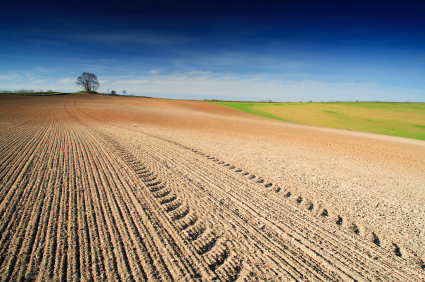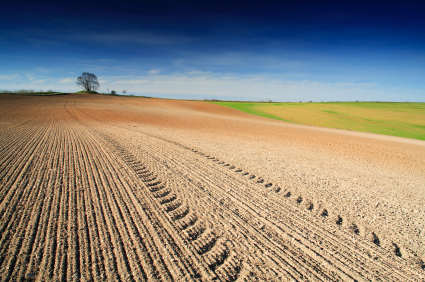 Climate change is moving forward briskly. But the U.S. response to it has been glacial — in the old-school sense, that is, before glaciers started melting.
Climate change is moving forward briskly. But the U.S. response to it has been glacial — in the old-school sense, that is, before glaciers started melting.
Unchecked, climate change will literally become a kitchen-table issue. Absent an organized global effort to slash greenhouse gas emissions, farmers are going to have to deal with increasingly volatile weather conditions, as Gary Nabhan chronicled here: droughts, floods, etc.
How are U.S. farmers responding so far? Two perspectives crossed my desk recently, both from Midwestern farmers.
The first comes from a fellow by the name of Gary H. Baise, who runs a 700-acre farm in Illinois — from his perch in suburban Washington (Fairfax County, Va.). Baise’s main gig is as an attorney for D.C.-based Olsson Frank Weeda Terman Bode Matz PC, which can credibly call itself the “nation’s premier FDA, USDA, and health care law firm, serving clients before federal agencies, courts, and Congress.” You might recognize the name of one of the firm’s partners: Marshall Matz served as Obama’s chief campaign adviser on ag issues.
Baise, a long-time D.C. political operative, writes a regular column for Farm Futures, the journal for “large-scale, high-income” farmers. His latest is called “Global Warming: Fact or Fiction?” Citing the work of a marketing professor (!), Baise concludes that there’s no scientific consensus around climate change. Message: Hey, large-scale, high-income farmers — don’t believe the hype about climate change!
I found a much different farmer perspective on climate in The New York Times, from Minnesota farmer Jack Hedin. Unlike Baise, Hedin earns his living as a farmer. Also unlike Baise, Hedin can’t rely on crop subsidies to smooth over rough times, because he grows vegetables, which don’t draw government support. (Baise’s Morgan County, Illinois, operation has brought in $318,733 in subsidies since 1995, Environmental Working Group reports.)
And rather than regurgitate the views of marketing professors on climate change, Hedin offers a report from the front lines of prairie farming. His area of southern Minnesota has been beset by no fewer than three “thousand-year rains” in seven years, causing severe crop losses and forcing him to move his farm operation (which has been in his family for generations) to higher ground.
He reports:
Climate change, I believe, may eventually pose an existential threat to my way of life. A family farm like ours may simply not be able to adjust quickly enough to such unendingly volatile weather. We can’t charge enough for our crops in good years to cover losses in the ever-more-frequent bad ones. We can’t continue to move to better, drier ground. No new field drainage scheme will help us as atmospheric carbon concentrations edge up to 400 parts per million; hardware and technology alone can’t solve problems of this magnitude.
Hedin ends by calling for “climate-change legislation” and “real changes in our daily lives to reduce carbon emissions,” because the “future of our nation’s food supply hangs in the balance.”
As global climate talks open in Cancun, voices like Hedin’s are drowned out. Washington won’t pass climate legislation anytime soon — and that means no global action on climate. For now, at least, voices like that of Baise, Washington apparatchik and climate denier, rule the day.



